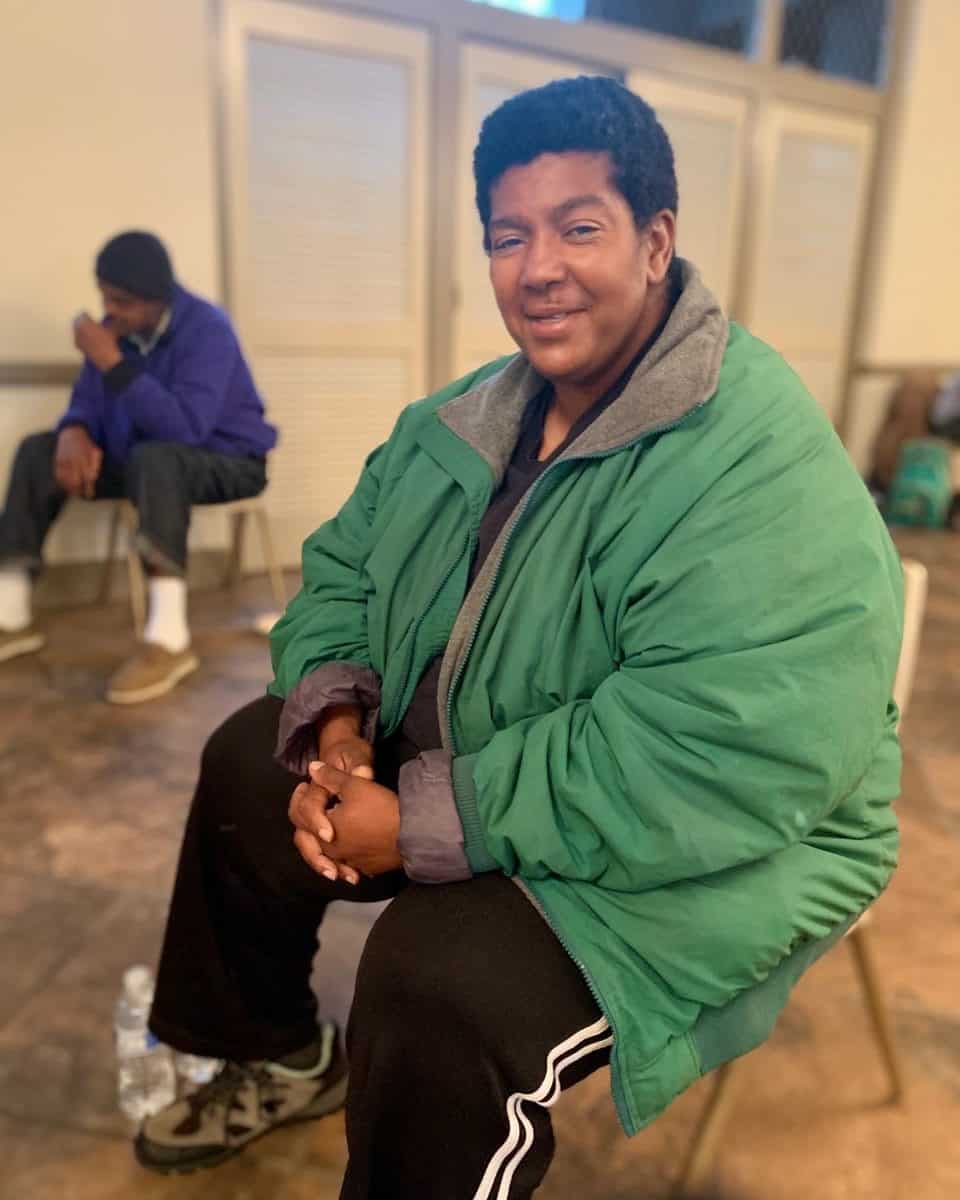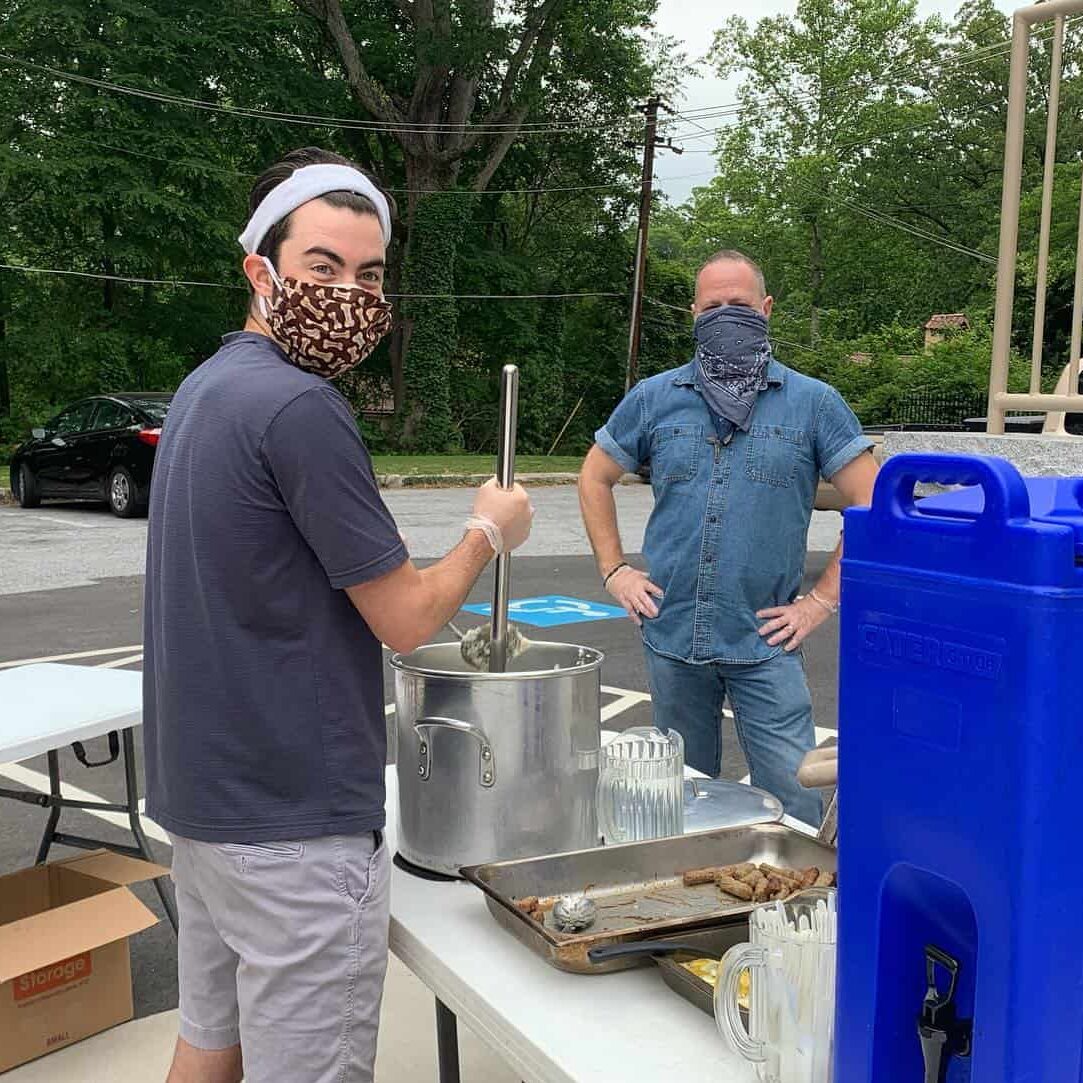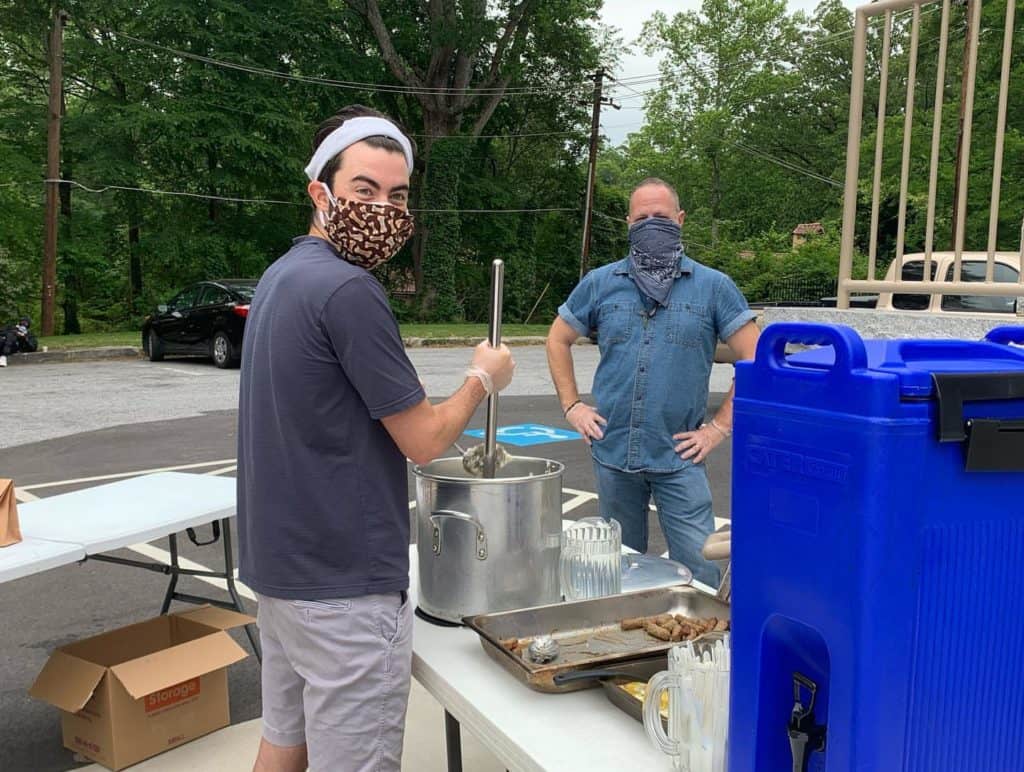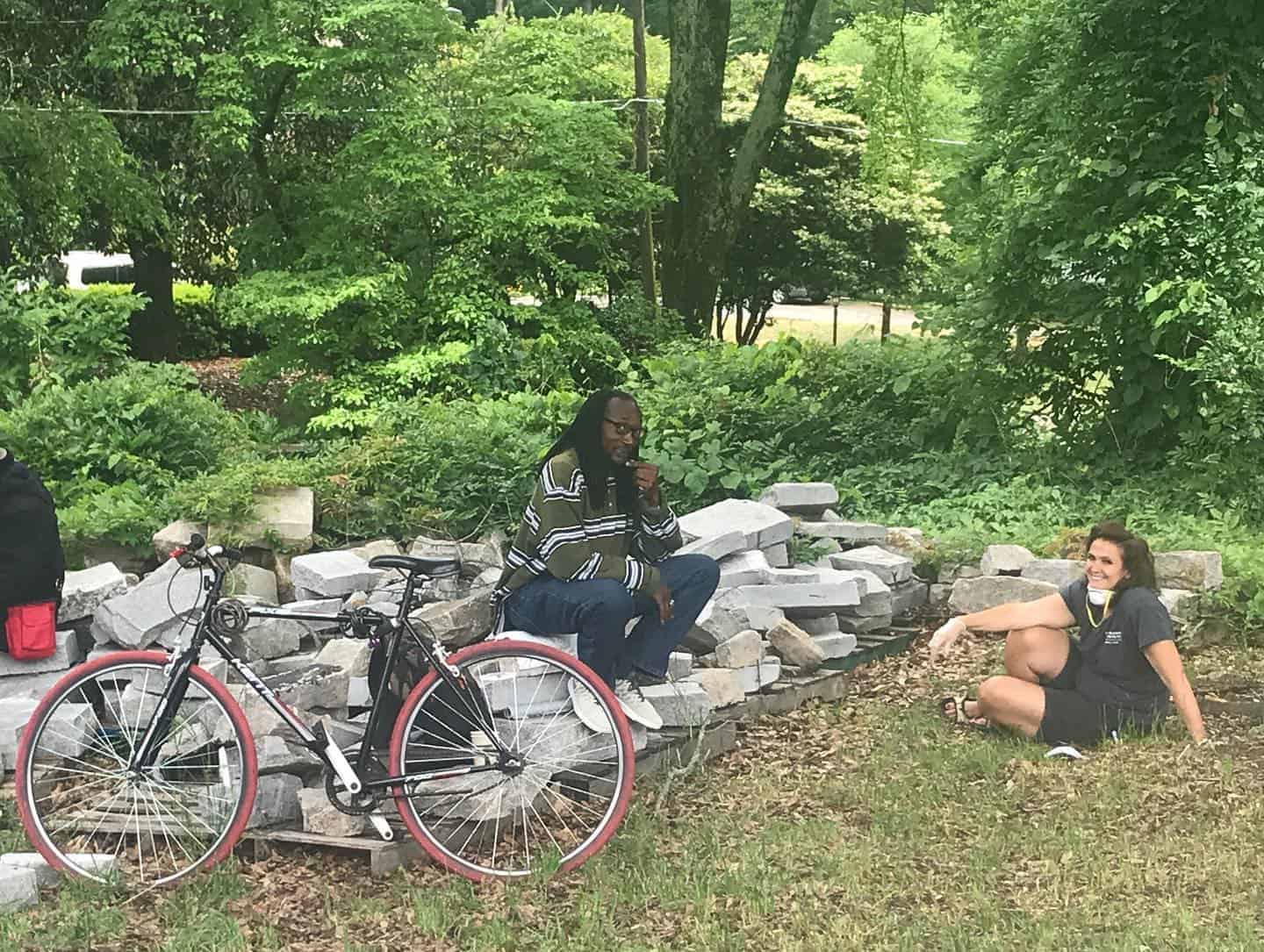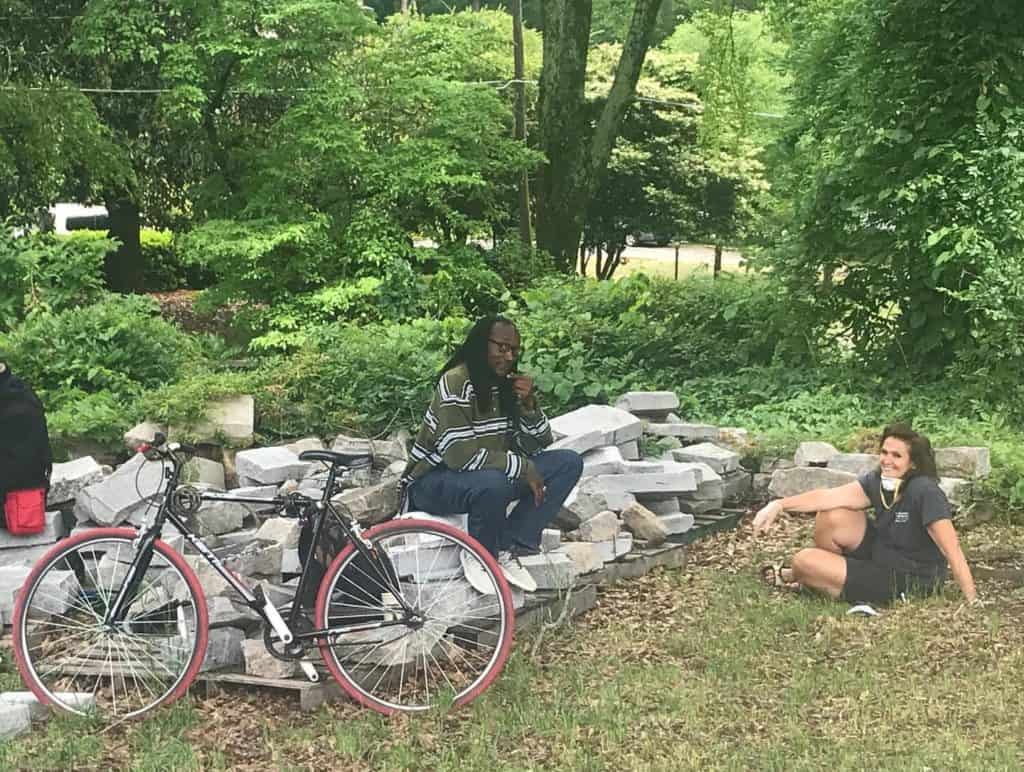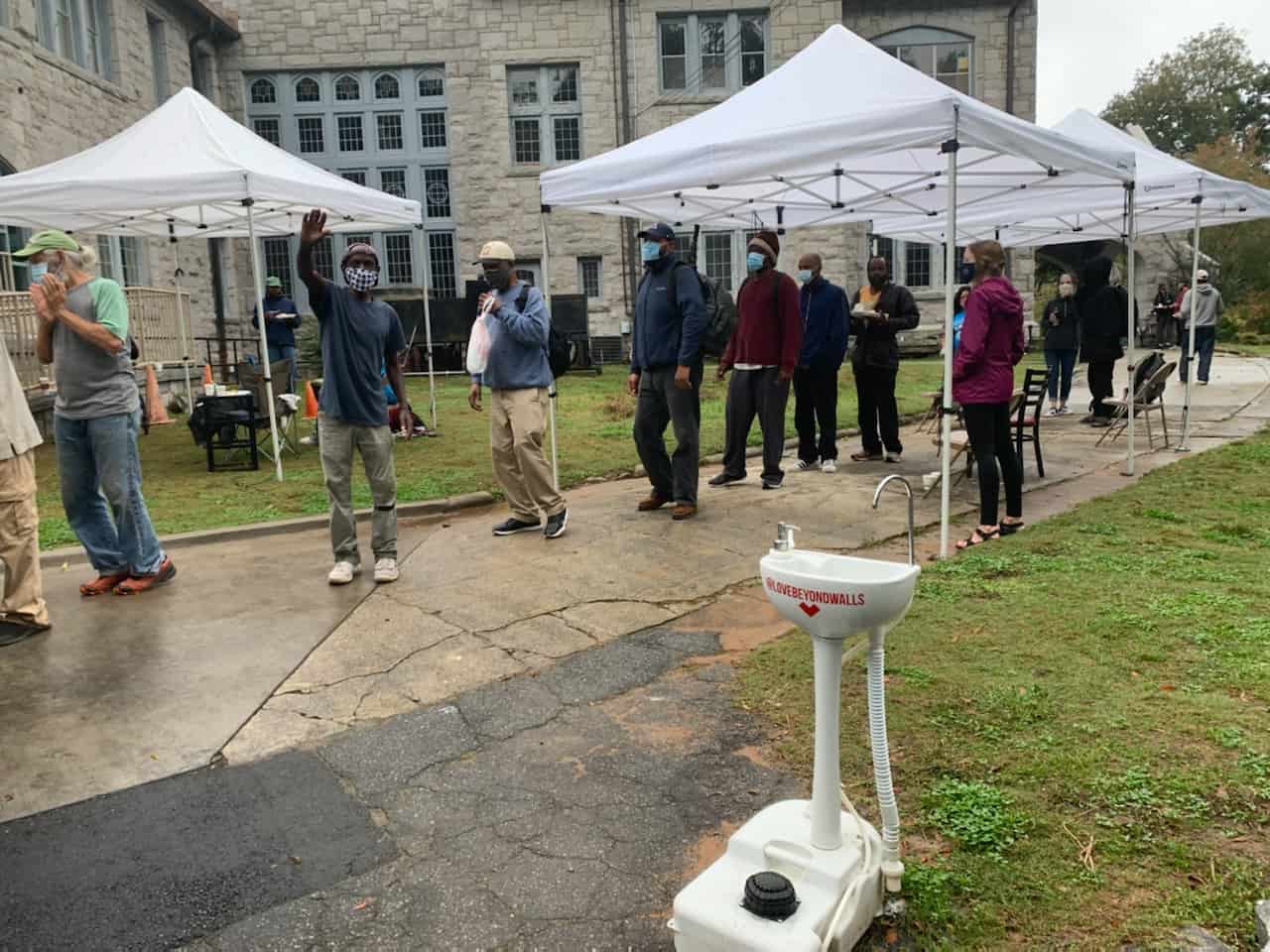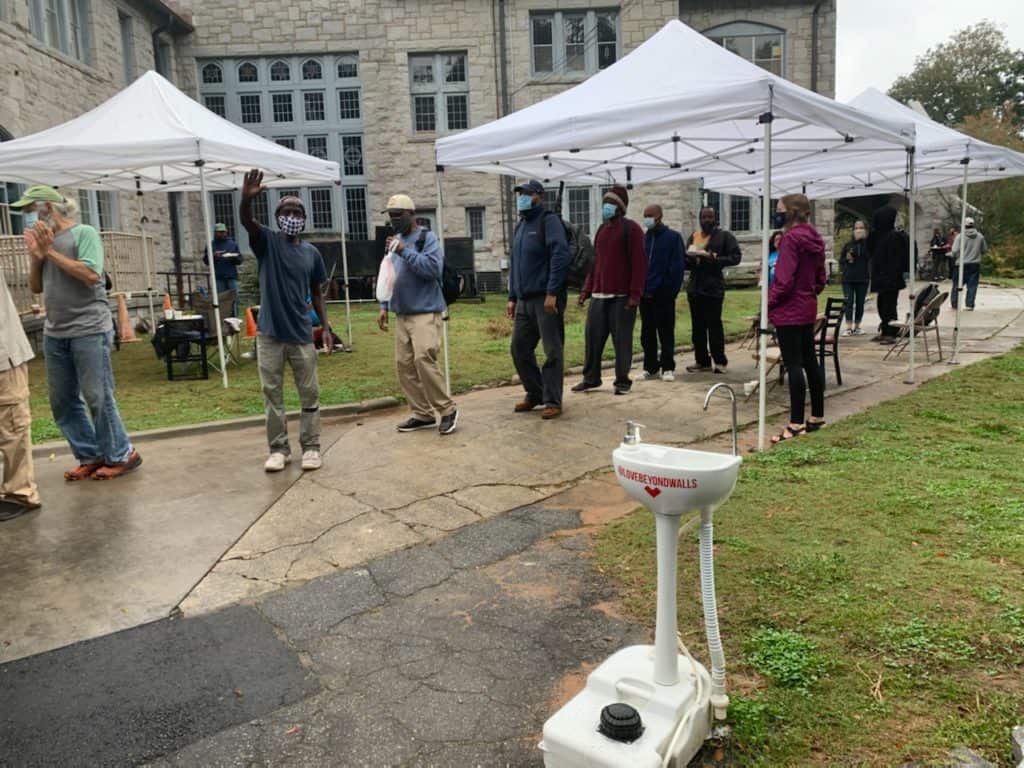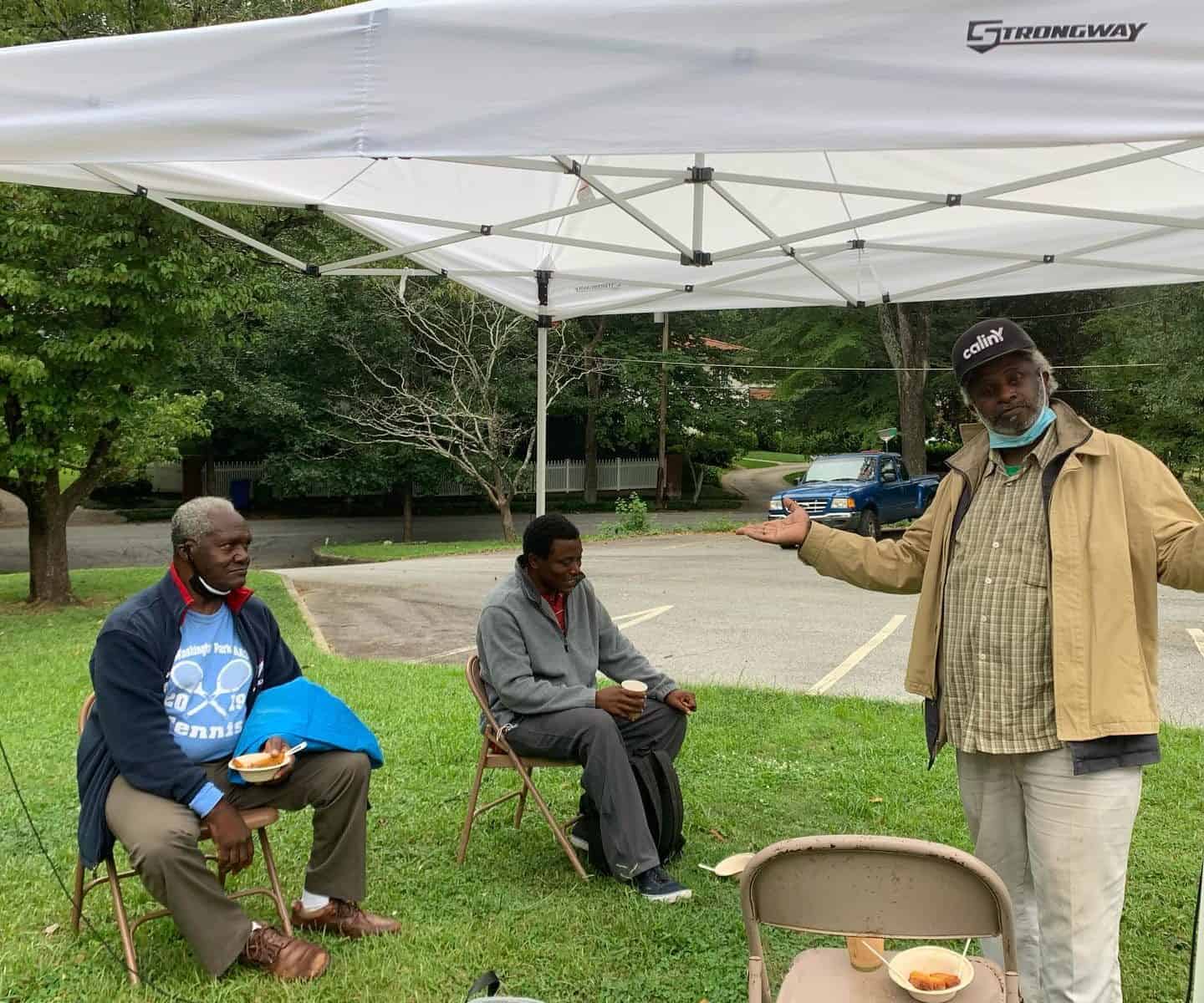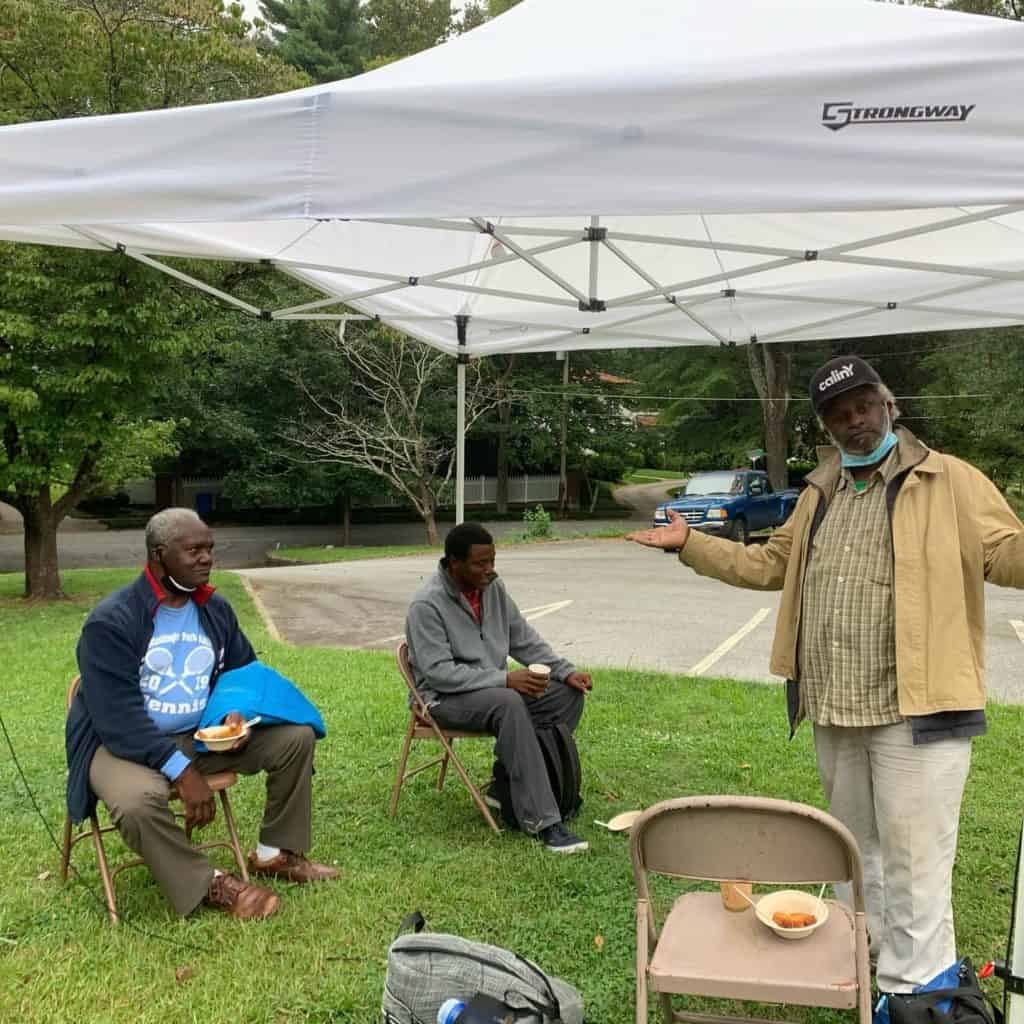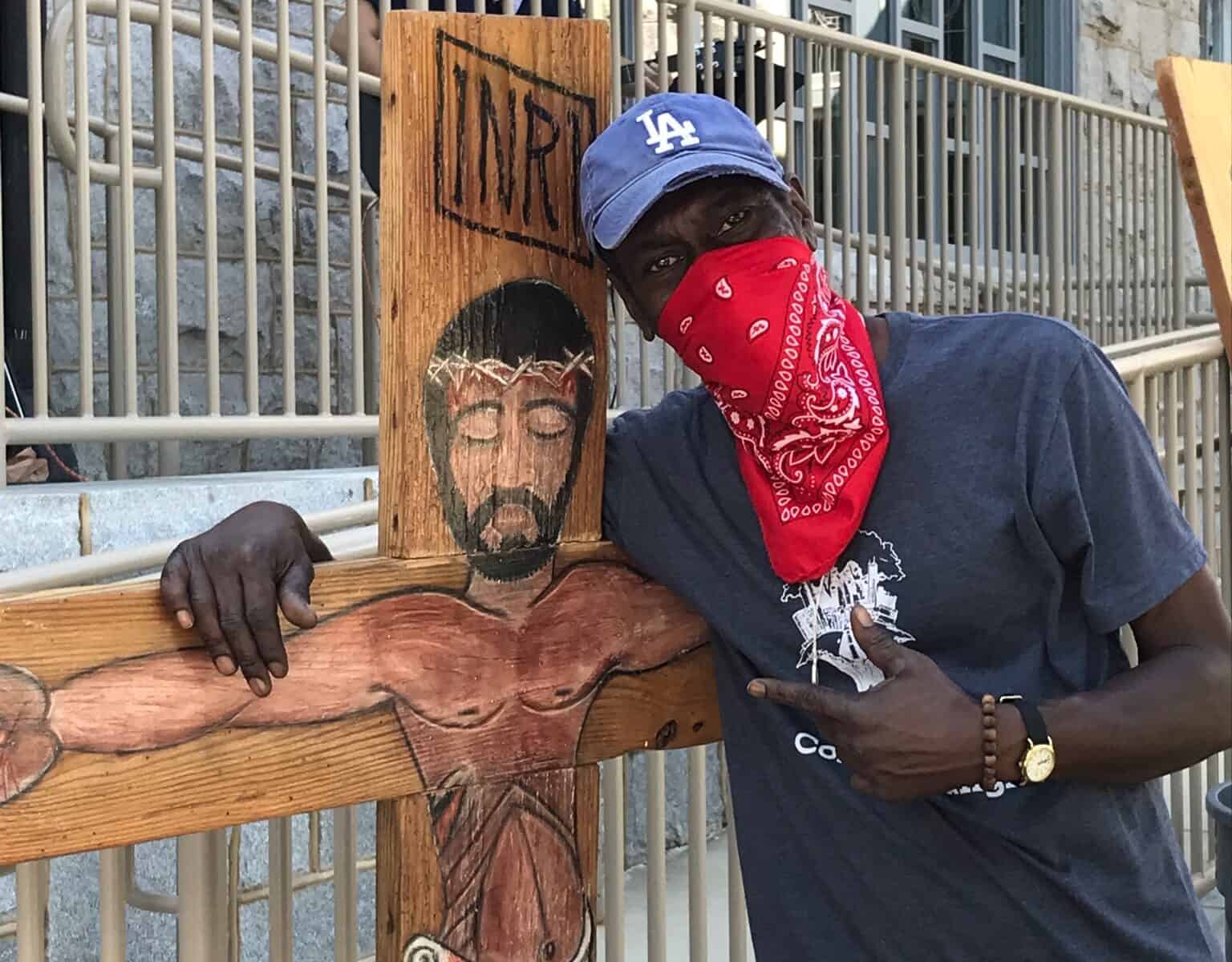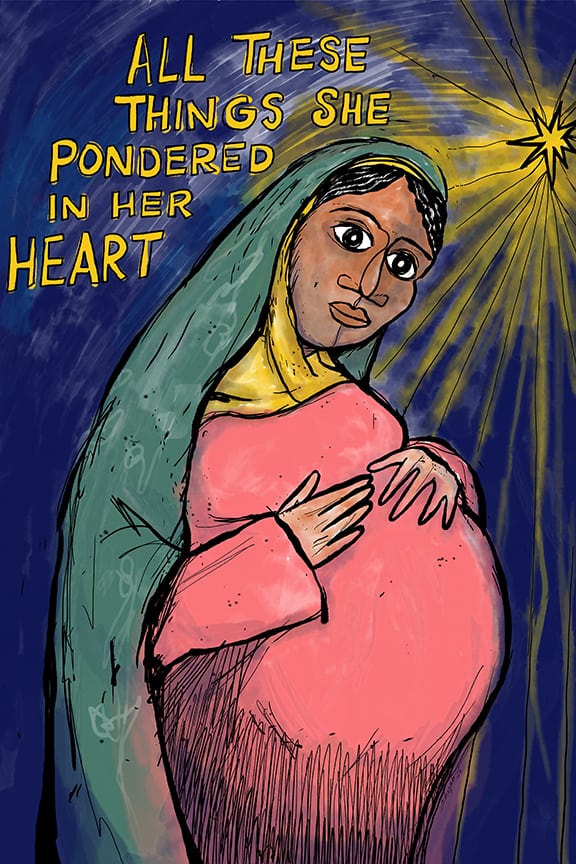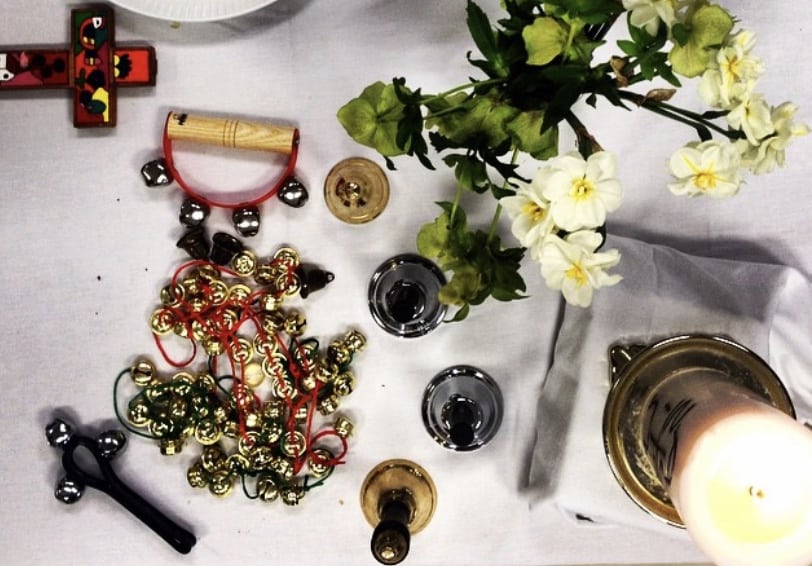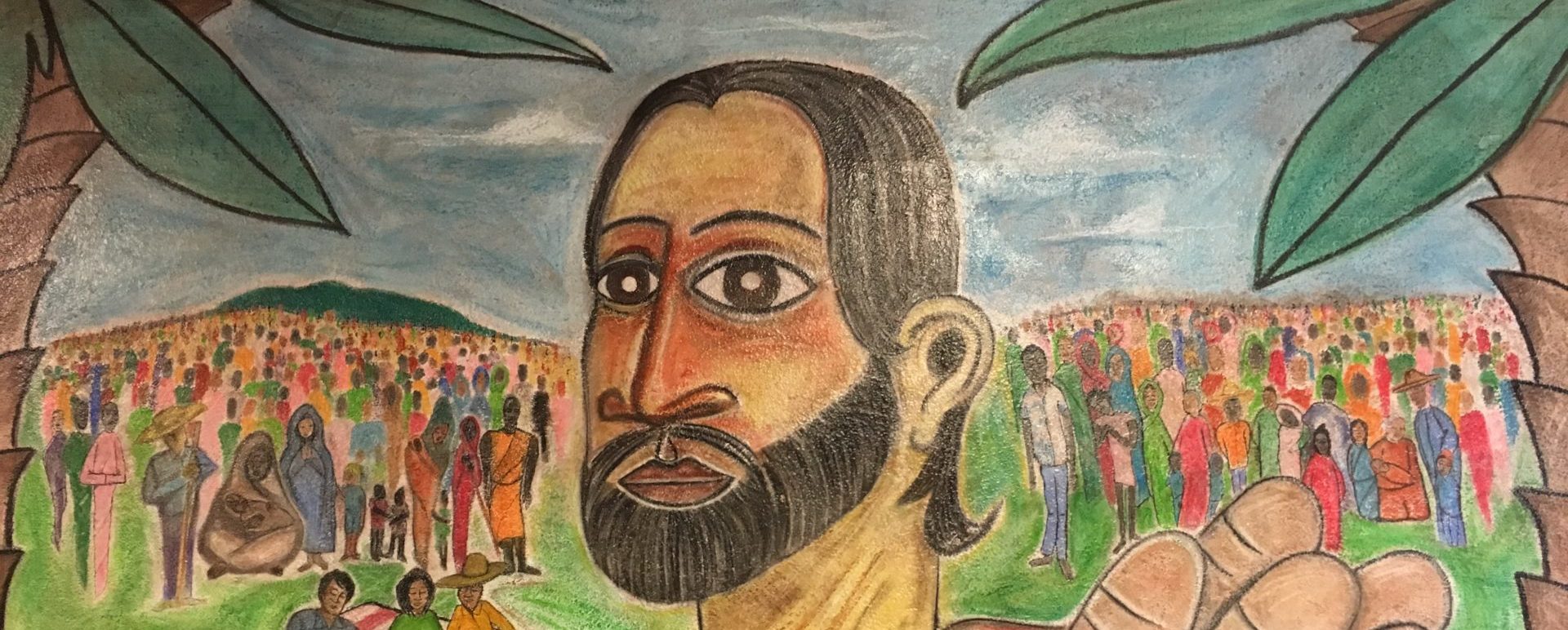Mercy has seen many changes over the last 15 years, but none quite so drastic or immediate as our response to the Covid-19 pandemic. It is hard to believe that in February of 2020 we were meeting for church shoulder to shoulder, passing the body of Christ from hand to hand, singing as loudly as possible about a Revolution, and escaping the cold and rain inside without much thought.
In March it became clear that things needed to change. With the help of our church partners at Druid Hills Presbyterian we moved from our crowded basement to a larger space upstairs and began meeting with intentional distancing in mind. Whether it was masks, gloves, or social distancing, from the start we made it clear we would adopt any protocol that meant our community would be as safe as possible without sacrificing our care for our community’s basic human needs as well. We were ever aware of the reality and dangers of multiple health crises to consider in the care of our community members.
Worshipping during a pandemic
Many of our churches have had to navigate how to be a faithful worshipping community during a global pandemic. With so many of our members without homes to ‘shelter in place,’ for us, it was never as simple as worshipping online (though we do that too!). We had to remain present to our siblings in Christ experiencing homelessness, but in the safest way possible. Early on we realized that meeting indoors just would not be possible–especially as our community grew in size! In May our community moved down Ponce de Leon to the lawn of long-time partners and neighbors St. John’s Lutheran Church. It is here that we continue to meet 5 days a week. With safety and hospitality ever present at the forefront, we are able to meet as a church. We serve and are served. We worship, pray, sing, feast, and support one another…if only at distance and a little muffled by our masks.
As a church we made a clear decision that we would still be present to our community in whatever way that meant – it looks different. It feels different. It is different. But it is also safe. It is good. It is community. It is church. And it is growing. Through the pandemic we have seen more new people every week. We have served more, worshipped more, and shared more than ever before. As other churches and many organizations closed their doors, we found ourselves with more and more feet on the lawn of St. John’s doing more than we have ever dreamed possible–and we’re really thankful.
Ever present needs, still ever present
Like so many in our community, we as a whole church have had to adapt to the world around us. When you have no home to stay in, ‘shelter-in-place’ can seem little else than a reminder of gross injustices in our society. Hot meals, shelter from the elements, access to clean restrooms, community, acknowledgement; these basic needs are still ever present.
Since February we’ve had to find ever creative ways to safely care for our growing community. It has been difficult, but it has also been full of grace and joy. One of the most encouraging realities of our work is that we never do it alone. While we have been sharing more food, clothing, and resources than ever before it is only because so many people have stepped up to share so generously with us! Throughout this pandemic we have been graced by the generosity and selflessness of so many people including essential partner organizations who care for the well-being of our community members, faithful volunteers who come clean and serve, gracious church partners who have opened up space for us, and generous donors who have shared monetary gifts as well as endless produce and clothing!
Here are just a few of our essential friends and partners who have worked alongside us day in and day out throughout the pandemic! We’re so thankful for them (and many, many more)!
Intown Collaborative Ministries
Feet on the Streets Ministries
St John’s Lutheran Church
Our Volunteers
Our Donors
Mercy Care
Herbalistas + Harriet Tubman Free Foot Clinic
Oak Grove United Methodist Church
Druid Hills Presbyterian Church
Church at Ponce and Highland




